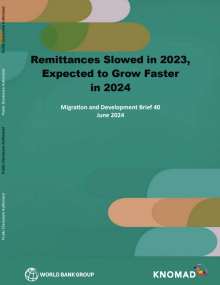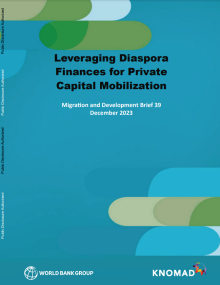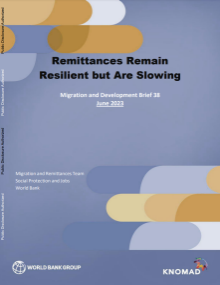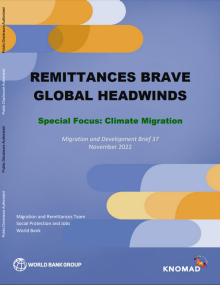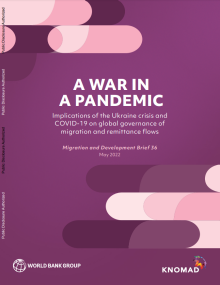Context
As of 2023, 184 million people were on the move as migrants around the world, driven by economic opportunities, conflict and violence, or other reasons, according to the World Development Report 2023. About half live in high-income countries, and one-third live in developing countries. Many countries at all income levels are origin, transit, and destination countries at the same time.
People who move to a different country to find work often send money back to their families and community. The movement of funds from the country of work back to a home country is known as remittances. In 2023, remittances back to home countries totalled about $656 billion, equivalent to the GDP of Belgium.
In more than 60 countries, remittances account for 3 percent or more of the Gross Domestic Product (GDP), and small/fragile states are more heavily dependent on remittances. As such, it is critical that both remittance senders and receivers have access to a multitude of payment methods and channels in order to deliver and receive remittances in an affordable and fast manner.
International organizations like the World Bank have a critical role to play in financing, provision of technical assistance, data collection and analytics, and in promoting dialogue among countries around migration. Learn more about the World Bank's involvement in the global migration agenda.
World Bank’s Strategy on Remittances
The World Bank’s work on remittances is guided by the following Sustainable Development Goals (SDGs):
- Reducing remittance costs
- Increasing the volume of remittances
For years, the World Bank has played a key role in highlighting the importance of remittance flows in developing countries and identifying factors contributing to the high cost of sending money. Its implementation of the General Principles on International Remittance Services – which cover transparency and consumer protection, payment systems infrastructure, legal framework, competition, and governance – is an essential part of efforts to reduce costs.
The World Bank also hosts the Global Remittances Working Group, and its database of worldwide remittance prices that generates quarterly analyses used by researchers and economists. The World Bank will continue to support countries in monitoring remittance prices and eliminating barriers to entry into the remittances market, including by streamlining anti-money-laundering regulations and addressing de-risking by correspondent banks.
Finally, the World Bank also undertakes operational work in specific countries to address remittance issues, for example, in Somalia the Supporting Remittance Flows project supports the Central Bank of to improve its supervisory role in remittance markets and to develop its financial system.

